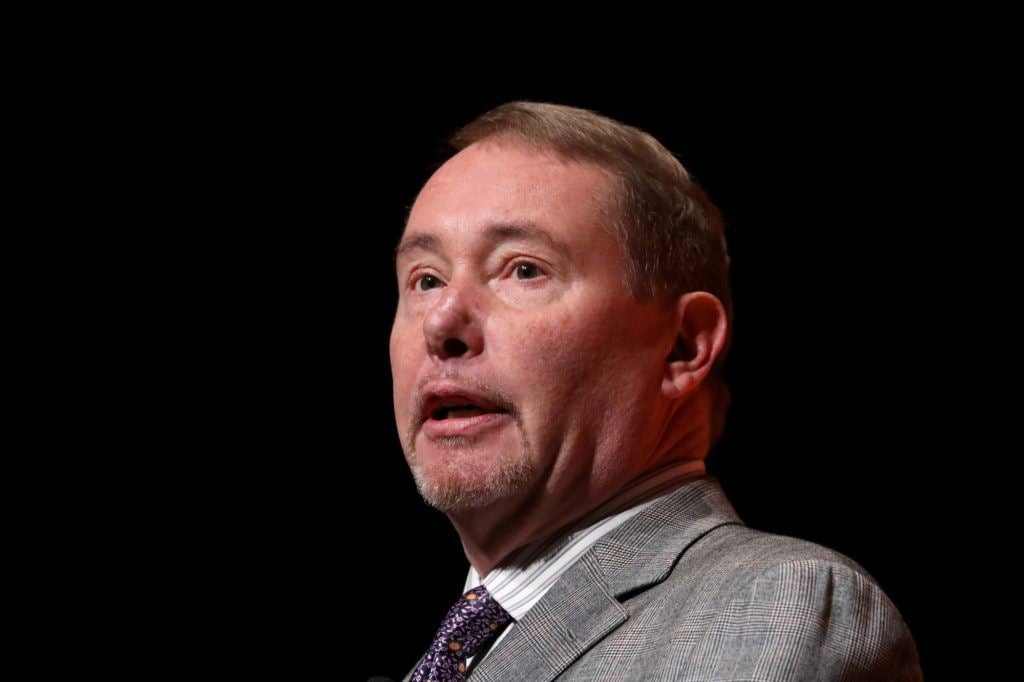Treasury Yields Crumble as ‘Bond King’ Warns of Epic Stock Market Meltdown

Jeffrey Gundlach is sounding a recession alarm in election year 2020. | Image: REUTERS/Brendan McDermid/File Photo
- Government bond yields hit fresh monthly lows on Tuesday.
- The Dow Jones Industrial Average heads for its worst day in months.
- U.S. equities will ‘get crushed” in the next recession, warns Jeffrey Gundlach.
U.S. government debt yields plunged on Tuesday after President Trump poured cold water on an imminent China trade deal, sending stocks tumbling.
Treasury Yields Tumble
Yields, which move inversely with bond prices, are back to trading at one-month lows Tuesday. The benchmark 10-year U.S. Treasury yield fell 13 basis points to 1.704%, while the 30-year Treasury yield hit 2.156%.

The rush into government bonds follows a record melt-up in U.S. stocks last month. The S&P 500 Index posted 11 record highs over the course of 20 trading days .
Stocks are now correcting lower, with the Dow Jones Industrial Average on track for its third consecutive triple-digit loss. The blue-chip index plunged by as much as 458 points on Tuesday.
Jeffrey Gundlach Warns of Epic Stock Market Meltdown
Influential ‘bond king’ Jeffrey Gundlach believes the next recession will crush U.S. stocks and prevent them from recovering for quite some time. In an interview with Yahoo Finance , the CEO of DoubleLine Capital said the pattern of easy money in stocks won’t last forever.
For starters, “the pattern of the United States outperforming the rest of the world has already come to an end,” he said. And like markets in Japan, Europe and emerging Asia, the S&P 500 may not recover to pre-recession levels during the next major downtrend.
Gundlach added,
… when the next recession comes, the United States will get crushed, and it will not make it back to the highs that we’ve seen, that we’re floating around right now, probably for the rest of my career, is what I think is going to happen.
The United States doesn’t appear to be sliding into recession based on the latest GDP numbers, but then again, nations usually don’t know they’re contracting until after the fact. It wasn’t immediately obvious that the United States had entered recession following the financial crisis, but several downward revisions to GDP proved otherwise.
A severe downturn in manufacturing suggests that recessionary forces may already be lurking. On Monday, the Institute for Supply Management (ISM) said U.S. manufacturing output contracted in November for the fourth consecutive month, matching the longest streak since the financial crisis. More often than not, four straight months of contraction usually indicates recession for the broader economy over the next two years, according to analyst Charlie Bilello.

The only caveat is that manufacturing accounts for a much smaller percentage of the U.S. economy than in previous decades when factory output was more strongly correlated with GDP growth.